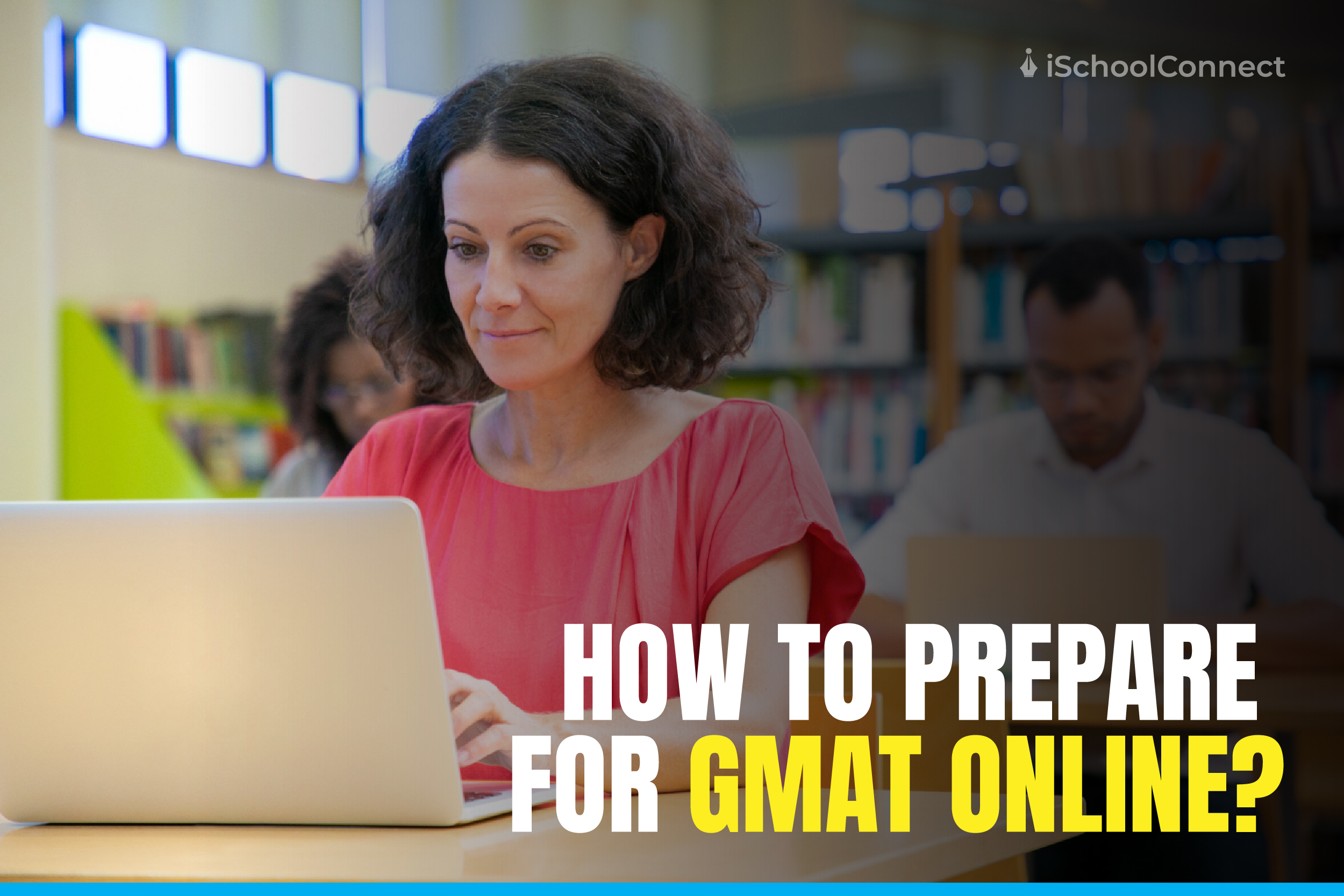Table of Contents
Many people dream of getting a stellar IELTS score and studying in the best universities abroad. But only a few achieve this feat. The IELTS exam plays an important role if you are planning your studies abroad. You need to plan your preparation well in order to get a high band score. There are a lot of tricks you can use to get there. But before moving to the tips, let’s read a bit about the IELTS exam.
What is the IELTS Exam?
The International English Language Testing System standing for IELTS is a language assessment tool for people who want to go for higher education abroad or work overseas. It is accepted by 9000 organizations in the world, including colleges in Canada, UK, Australia, and New Zealand.
IELTS can be computer-based as well as paper-based. You can choose the mode of the IELTS exam at your convenience.

Types of IELTS exams
There are two types of IELTS exams available. You need to opt for one based on your purpose of taking the exam.
The IELTS Academic test is for students who intend to study at a university in an English-speaking setting (higher education). IELTS Academic can also be used as an English language proficiency proof for applying to jobs in multinational corporations.
If you are taking the IELTS exam for migration purposes, you need to go for the IELTS general test.
A good IELTS score will put you on an entirely different pedestal. So, make sure you prepare well to have a competitive edge.
What is the IELTS test Format?
The IELTS exam consists of 4 sections:
- Listening
- Reading
- Writing (task 1 and task 2)
- Speaking
The format of the IELTS Academic and IELTS General Training editions is similar, but the subject matter of the Writing task 1 and Reading components of the test differs.
Now that you have a general idea of the IELTS exam, let’s move forward and learn some IELTS tips.
What are the best IELTS exam tips?
Preparing for the IELTS exam requires immense planning and effort. Here are some of the key tips that can help you excel in each section and boost your overall score.
IELTS Reading tips
The IELTS Academic Reading section consists of three different long passages. You need to answer 40 questions within 60 minutes. These paragraphs will resemble academic journal articles or parts from books. So basically, these articles can be from actual books.
Some IELTS Reading tips include:
1. Work on your vocabulary
Having a good grasp of vocabulary is important. The IELTS Reading section is about knowing vocabulary and figuring out relational or familiar words within their context.
If you are thinking about cramming the dictionary, it will not work. You cannot always memorize the list of words, especially in a test. The trick here is to learn vocabulary through reading.

Read passages, book chapters, academic articles, and subscribe to journals. Build your vocabulary in various ways, such as
- Memorizing
- Associating
- Visualizing, and
- Reinforcing
This will help you improve your vocabulary game and drastically raise your IELTS exam score.
One of the most important IELTS Reading tips is learning new words through different means, making lists, and regularly reviewing those lists. This will help you retain new words and also teach you how to use those words in various contexts.
2. Don’t make any assumptions
We know that practice makes perfect. The more you practice different academic reading passages, the more you get used to possible themes and the IELTS Reading question types.
But when you’re taking the IELTS exam, put aside all the question-specific information you have gathered. Focus on what you have learned.
One of the essential IELTS exam tips anybody will give you is to focus on the text given and making deductions based on only the information present in the passage.
3. Learn how to scan and skim
This is a very important IELTS Reading tip skim the text in around 2-4minutes.
Going through the paragraph first to get the general idea and theme and then looking at questions will help you understand the context quickly and manage your time effectively.
As you do this, look for possible keywords and underline/highlight them. These can be numbers, specific jargon, a location, or a subject matter that was mentioned or rephrased multiple times.
Then, go to the questions in order and locate the main phrase in the text. You don’t have to grasp every word, term, or detail. But if you maintain your calm and move strategically, you can locate the answers.
These IELTS Reading tips will help you move towards your desired IELTS score. All you need to do is follow these tricks and strategize well.
IELTS Writing tips
In the IELTS Writing section, you will have to attempt 2 writing tasks. You will get 60 minutes for these two tasks.
Your first writing test will be to write a report writing based on a chart or table. On the other hand, the writing task 2 question will be more abstract and theoretical.
So brace yourself for more open-ended questions on abstract topics or tougher concepts. As writing is subjective, it is important to follow certain guidelines that can get you a decent IELTS score.

Some of these tips include:
Tips for IELTS Writing Task 1
You can write 3-4 paragraphs in this task.
- Begin the first paragraph by paraphrasing the information given in the question. You can use synonyms and grammar transformations to describe the graph or data table information.
- Paragraph 2 should consist of the data you can gather from the graph, table, etc. Describe the information that is relevant to the issue.
- Conclude the task by stating your opinion as per the given diagram in the third paragraph. Note that you need to structure your primary paragraph and body and conclude by summarizing the main themes from your body.
Tips for IELTS Writing Task 2
This task can be a question asking your opinion about a social issue or space research. This makes the essay more challenging to write.
- One of the important IELTS Writing tips would be to write an introduction, at least two paragraphs explaining the topic or the data, and a conclusion.
- To begin with, rephrase the issue and construct a thesis statement based on your viewpoint.
- Then, compose topic sentences outlining your primary ideas, one for each argument. Separate each idea/advantage/disadvantage/point of view into paragraphs.
- Use examples to illustrate the topic sentence in paragraphs. When writing lengthy sentences, use linking words/transition words.
- In the conclusion, summarize your main points and re-state your inference.
Follow the format for the IELTS Writing section, be sure of the word limit, and learn how to manage your time. Improving on these 3 things will definitely help you get a high band in the IELTS exam.
IELTS Speaking tips
The IELTS Speaking section tests your speaking and communication skills. It has 3 parts:
- Introduction (4-5 minutes)
- Speaking on cue (3-4 minutes)
- Discussion (4-5 minutes)
Before beginning with the tips, let us debunk one myth you don’t need to have an accent to nail the Speaking section.
Some IELTS Speaking tips include:
- Practice
Speaking in a test is entirely different from having a regular conversation with someone. So practice speaking English as much as possible.
You can record yourself while speaking and listen to those recordings to analyze your mistakes. Notice everything from pronunciation to language, and grammar. This will help you get better at speaking in front of the examiner, leading to a good IELTS score.

- Keep the grammar in mind
The examiners mark you on your grammatical structures, pronunciation, accuracy, fluency, coherence, and lexical resources.
Work extensively to get better at using grammatical structures while speaking. Try and include a mix of simple and complex sentences in your talk. Make sure you are using the tenses correctly too.
If you’re looking for more IELTS Speaking tips and topics read our blog on IELTS Speaking topics and tips!
Key Takeaways
IELTS exam isn’t a cakewalk, but if you prepare well, it won’t feel like a hurdle in your study abroad journey. So follow these IELTS tips, notice what works for you, and ace the exam!
If you still can’t figure out how to improve your IELTS score, take up a course, and learn from professionals. Consider it as a huge investment in your future and professional career in academia.
Need some assistance improving your IELTS score? Reach out to us or drop a comment below!
Good luck!






